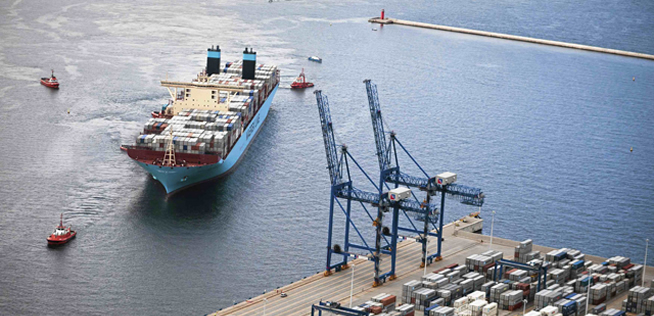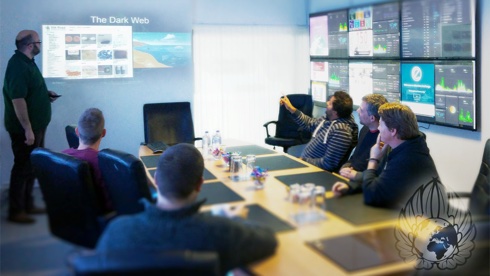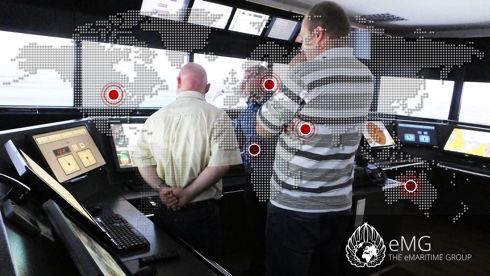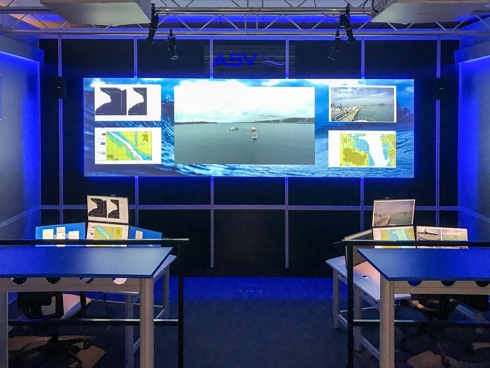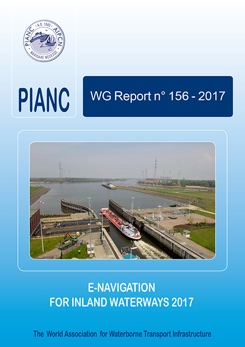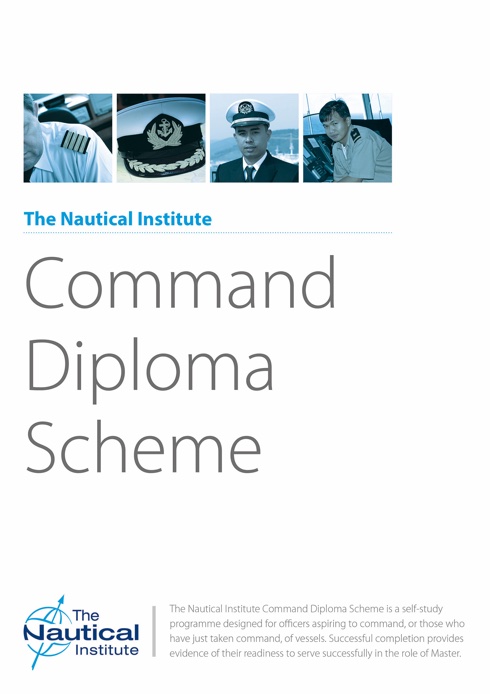UNCTAD signs MOU with MarineTraffic
On 16 May leading global ship tracking intelligence company MarineTraffic and the United Nations Conference on Trade & Development (UNCTAD) signed a Memorandum of Understanding. Under the agreement, UNCTAD and MarineTraffic will be sharing information and data that will enable both organisations to enhance their services and allow for more accurate analysis of global trade and shipping trends.
Geneva-headquartered UNCTAD plays an important role in integrating developing countries into the world economy, with maritime-related research, policy analysis and data collection an integral part of this process.
MarineTraffic currently records 800 million vessel positions and 18 million vessel- and port-related events monthly by tracking ships’ Automatic Identification Systems (AIS) through a network of terrestrial receivers and satellites.
Frontex, EMSA and EFCA strengthen cooperation on coast guard functions
The European Border and Coast Guard Agency (Frontex), the European Fisheries Control Agency (EFCA) and the European Maritime Safety Agency (EMSA) took a significant step in structuring their cooperation on coast guard functions by signing a Tripartite Working Arrangement as foreseen by the amended founding regulations of the three Agencies of October last year. This was reported by EMSA on 11 May 2017.
It is understood that the agreement sets out the framework for the enhanced synergy between the European agencies which will enable them to support in an effective and cost-efficient way the activities of more than 300 civilian and military authorities in the Member States responsible for carrying out coastguard functions in a wide range of areas such as maritime safety, security, search and rescue, border control, fisheries control, customs control, general law enforcement and environmental protection.
Aligned with their mandates Frontex, EFCA and EMSA will cooperate in sharing maritime information, providing new surveillance and communication services, building capacity, analyzing operational challenges and emerging risks in the maritime domain as well as planning and implementing multipurpose operations.
Call for a sustainable future in space
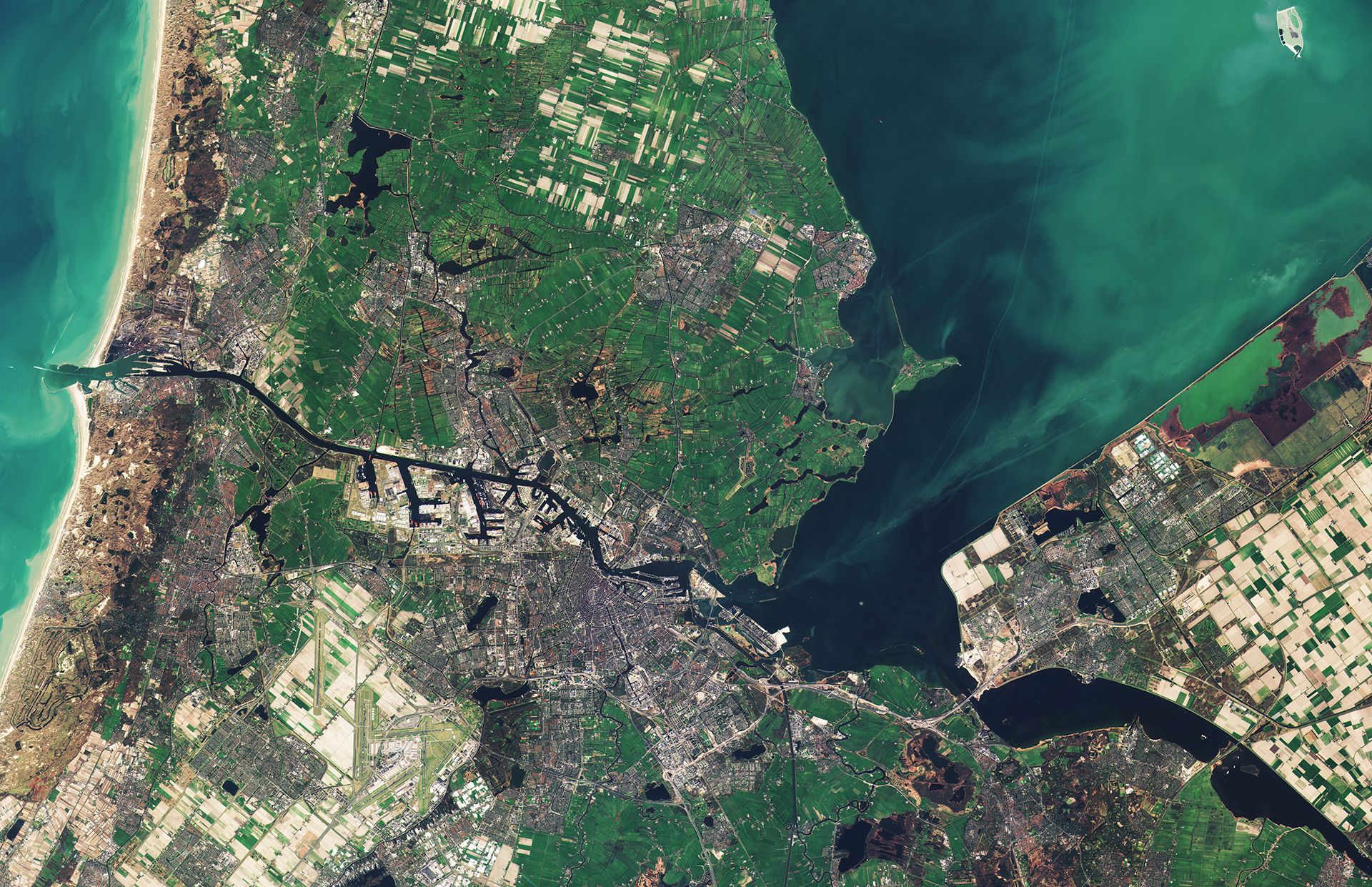
With more than 750,000 pieces of dangerous debris now orbiting Earth, the urgent need for coordinated international action to ensure the long-term sustainability of spaceflight was a major finding from Europe’s largest-ever conference on space debris. This was reported toward the end of April by the European Space Agency, ESA.
In the words of Brigitte Zypries, German Federal Minister for Economic Affairs and Energy, speaking at a press briefing at the close of the European Conference on Space Debris held in Darmstadt, Germany: ‘We require a coordinated global solution to what is, after all, a global problem that affects critical satellites delivering services to all of us.’
ESA Director General Jan Woerner appealed to space stakeholders to keep Earth’s orbital environment as clean as possible. Developing and implementing the ESA Space Situational Awareness (SSA) programme as decided during ESA’s last ministerial council in 2016 will be a key factor.
Two New Cyber Security Awareness (CSA) Courses
IAIN Corporate Member ECDIS Ltd has expanded its 35+ strong training portfolio with two new courses for Cyber Security Awareness (CSA) Operators and for Management. The courses cover a wide range of topics from What is Cyber Security, to Risks of the Internet and Hacking as well as providing a case study from a large American company who staged a cyber attack.
The courses have been developed and delivered to the maritime industry in response to the ever increasing recognition of its impact both onboard and ashore. The effect of cyber attacks can be detrimental not only to company finances due to delay but also to the safety of the crew and passengers.
A new era of digital underwater communications
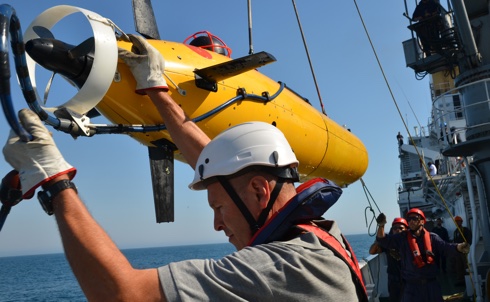
Satellites and mobile phones, built to international standards, help the world get connected. But the communications technology used on land does not work well underwater. With water covering over 70% of the earth’s surface, NATO has sponsored research into establishing the first ever digital underwater communications standard.
Imagine a scuba diver approaching the surface, being made aware of nearby boating activity; or a submarine communicating with a land-based command post; or an underwater robot sending a warning to an oil rig after a leak is detected – the possible applications of underwater communications are many. For example, they could be used in many areas: for harbour protection, maritime surveillance, mine detection, surveying offshore wind farms and pipelines, or even underwater archaeology.
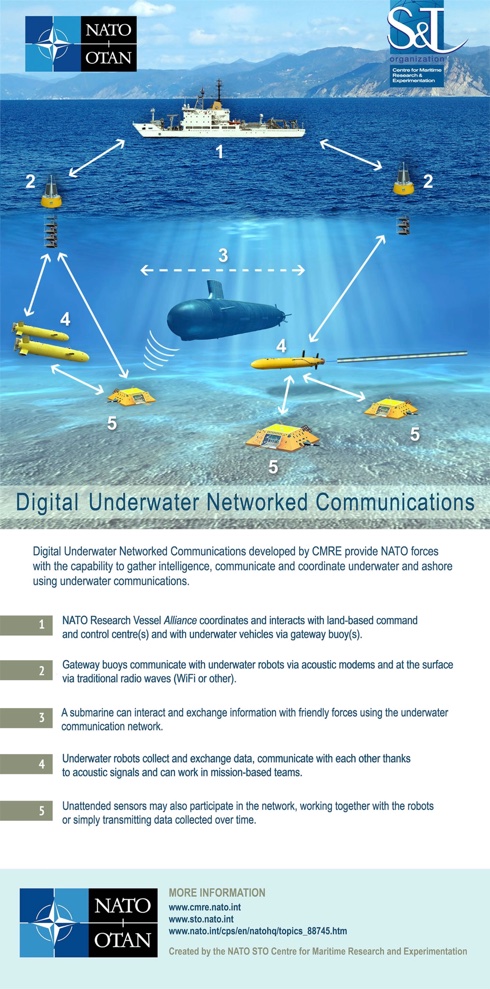
The NATO Science and Technology Organization’s Centre for Maritime Research and Experimentation (CMRE) has developed a standard for underwater acoustic communications called JANUS, which has been recognised as a NATO standard by all NATO Allies since 24 March 2017. This marks the first time that a digital underwater communication protocol has been acknowledged at international level and opens the way to develop many exciting underwater communication applications, it has been reported. To this effect NATO issued a communiqué on 27 April.
Boeing and CSIRO launch 35M research programme
CSIRO has signed a new, $AUD35 million research agreement with the world’s largest aerospace company, Boeing. Over the next five years the organisations will work together on a broad range of areas of mutual interest including space sciences, advanced materials and manufacturing.
This is the latest step in a 28-year partnership between CSIRO and Boeing that has provided a huge boost for Australia in the global aviation industry.
Earlier this month (April), Boeing named CSIRO as a 2016 Supplier of the Year.
CSIRO and Boeing celebrated their respective centenaries in 2016. Over the years the organisations have invested more than $AUD170 million on 190 joint research projects into everything from innovative new manufacturing processes, to fire retardants, biofuels and software.
CSIRO’s Paintbond technology (illustrated), for instance, has been applied to more than a thousand Boeing airplanes, including some in the skies above Australia, saving millions of dollars in maintenance costs.
ECDIS widespread approval
According to IAIN Corporate Member, ECDIS Ltd., five of the seven continents have selected the eMaritime Group as their preferred provider for IMO 6.09 and 6.10 Train the Trainer Courses.
The group have now delivered their MCA Approved Instructor Training Courses (based on IMO Model Courses 6.09 and 6.10) to many colleges and shipping companies from Europe, North America, Africa, Asia, and Australia.
The courses are held at ECDIS Ltd’s head office in Hampshire, UK, and enable students to learn better teaching techniques for both standard and simulator based training courses. Each course is five days in length and covers a wide range of topics from the role of the instructor to teaching methods, communication skills and effective use of teaching aids.
eMaritime Group Release ACAT Course for the New Transas 4000 ECDIS
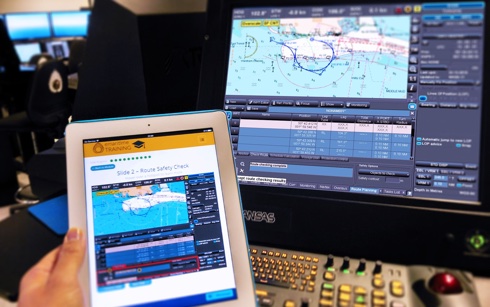
eMaritime Group, part of which is ECDIS Ltd, Corporate Member of IAIN, have further extended their ECDIS Annual Competency Assurance Training (ACAT) portfolio by including a course for the new TRANSAS 4000 ECDIS.
Available online as well as the new offline downloadable version, ECDIS ACAT is understood to be used daily by shipping companies globally.
EUROCONTROL agreement with the European Commission’s CERT-EU on cyber-security
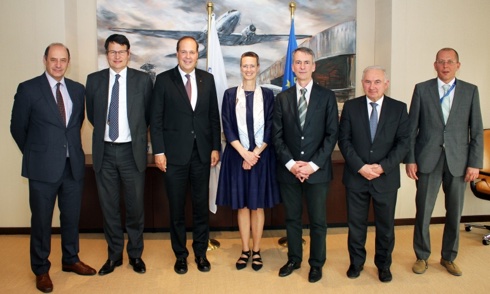 From left: Joe Sultana, Director Network Manager Directorate at EUROCONTROL, Philippe Merlo, Director Air Traffic Management at EUROCONTROL, Frank Brenner, Director General of EUROCONTROL, Gertrud Ingestad, Director General of DG DIGIT, Freddy Dezeure, Head of CERT-EU, Herman Baret, Centralised Services Programme Manager at EUROCONTROL, and Dan Simonic, Chief Information Officer of EUROCONTROL – photo kindly provided by EUROCONTROL©
From left: Joe Sultana, Director Network Manager Directorate at EUROCONTROL, Philippe Merlo, Director Air Traffic Management at EUROCONTROL, Frank Brenner, Director General of EUROCONTROL, Gertrud Ingestad, Director General of DG DIGIT, Freddy Dezeure, Head of CERT-EU, Herman Baret, Centralised Services Programme Manager at EUROCONTROL, and Dan Simonic, Chief Information Officer of EUROCONTROL – photo kindly provided by EUROCONTROL©
On 13 March 2017 EUROCONTROL and the European Commission DIGIT Computer Emergency Response Team (CERT-EU) signed a Service Level Agreement to improve cyber security. On 5 April this agreement was formally presented to EUROCONTROL by Gertrud Ingestad, the Director General of the European Commission Directorate General for Informatics (DIGIT).
CERT-EU’s mission is to support the European institutions, agencies and bodies to protect themselves against intentional and malicious attacks that would hamper the integrity of their IT assets and harm the interests of the EU.
It was further reported that CERT-EU will provide services to EUROCONTROL in order to support the setting up of the European Air Traffic Management Computer Emergency Response Team (EATM-CERT®.
CERT-EU will make available some information and cyber-security tools to EATM-CERT as well as sharing experience, expertise, advice and procedures on how to operate a CERT efficiently.
Nigerian wreck removal warning
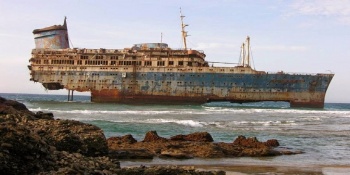
In a bid to ensure safe and secure shipping in Nigerian territorial waters, the Nigerian Maritime Administration and Safety Agency (NIMASA) has warned all owners of abandoned vessels to urgently remove them from Nigerian territorial waters on or before 28 April or risk sanctions ranging from forfeiture or removal by the Agency at the owner’s expense.
Director General of the Agency, Dr Dakuku Peterside stated this recently in Lagos and stressed the need to ensure that Nigeria’s waters remain safe for navigation in order to advance the country’s maritime interests.
He went on to warn that all abandoned ships would be declared as wrecks and the Agency would ensure that nothing impedes safe navigation in Nigeria’s waters.
ASV Global’s advanced autonomous vessel mission control centre
On 20 April Mark Garnier, Parliamentary Under Secretary of State at the Department of International Trade, opened an advanced Mission Control Centre created by ASV Global, a leading autonomous vessel technology developer, at its headquarters in Portchester, Hampshire. This new centre will be the hub for the company’s ongoing development of its market leading ASView® autonomous vessel control system. Not only will the centre be capable of operating and monitoring the company’s fleet of ASVs throughout the world using satellite communications but will also be used for operator training and simulation exercises.
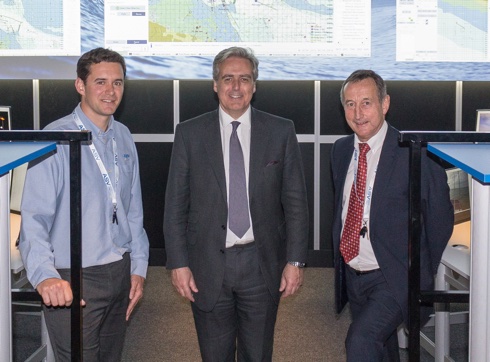
Furthermore, the centre has been partly funded under Innovate UK funding awarded to the company in 2015 under a project called Unmanned Safe Maritime Operations Over The Horizon which tasked ASV Global’s team of autonomous system engineers to research and develop both the technology and the regulatory requirements of operating autonomous vessels over the horizon.
HMS Enterprise returns home
 photo: UK Crown Copyright 2017©
photo: UK Crown Copyright 2017©
On 18 April HMS Enterprise (H88) returned home after an epic 35-month deployment. In almost three years she steamed 150,000 nautical miles, visited 20 countries while conducting maritime security operations, protecting Britain’s economy and rescuing those in danger.
With a 78-strong ship’s company the specialist survey ship Enterprise was at the heart of operations to prevent people-smuggling in the Mediterranean. She evacuated more than 200 British citizens from Libya, rescued 9,180 people attempting to undertake deadly crossings of the Mediterranean and destroyed 117 unseaworthy vessels used by people traffickers.
Galileo Search & Rescue

Europe’s Galileo satellite navigation network does more than let the user navigate – it is also helping save lives. On 6 April the spotlight was cast on Galileo’s Search and Rescue service, which pinpoints those in distress on land or sea.
This service is Europe’s contribution to the Cospas-Sarsat international satellite-based locating system that has helped to rescue more than 42 000 people since 1982 – the only system that can independently locate a distress beacon wherever it is activated on Earth, it is said. The service was formally premiered on 6 April, a date chosen to highlight the Cospas-Sarsat 406 MHz signal.

e-Navigation for Inland Waterways 2017
A new PIANC Working Group 156 (WG 156) publication titled: e-Navigation for Inland Waterways 2017 deals with updating the PIANC River Information Services (RIS) Guidelines of 2004.
When PIANC Working Group 125 finished its report in 2011, it concluded that River Information Services might benefit from concepts in the maritime world such as e-Navigation, e-Maritime, and Vessel Traffic Management (VTM). In addition it was found that in several regions, for example the Westerscheldt River, the interaction between seagoing and inland transport was increasing.
It was apparent there was a need to investigate these themes on a global level. For this reason, PIANC was the most suitable organisation to support such research, and consequently, PIANC Working Group 156 was initiated with its first meeting on 23 September 2013 in Maastricht, the Netherlands.
UK light dues cut
In the UK House of Commons (Lower House) on 30 March Minister of State at the Department of Transport, John Hayes issued a written ministerial statement:
‘A strong and growing maritime industry is vital to the economy of the United Kingdom and it is critical that we treasure and protect this vital artery if we are to remain a world-leading maritime centre.’
‘The work of the General Lighthouse Authorities, which provide and maintain marine aids to navigation and respond to new wrecks and navigation dangers in some of the busiest waters in the world, is crucial to underpinning that vision whilst maintaining our vigorous safety record and continuously improving standards of safety.’
‘Light dues rates will continue to be reviewed on an annual basis to ensure that the General Lighthouse Authorities are challenged to provide an effective and efficient service which offers value for money to light dues payers while maintaining the highest levels of safety for mariners.’
Major steps taken in developing international e-Navigation standards
Denmark is striving to digitalise the maritime industry and now a project led by the Danish Maritime Authority and supported by the EU has taken a major step towards a global standard for digital data exchange. This was reported by the Danish Maritime Authority (DMA) in a communiqué of 6 April 2017.
IALA’s Committee on e-Navigation have just agreed on a proposed guideline for specifications of digital data exchange. The guideline has been developed in DMA’s EfficienSea2 project. The new guideline will provide a common language on how to deliver digital data services and make it possible to use the same digital data stream across equipment and regions.
US Navy fires Tomahawk missile 7 April 2017
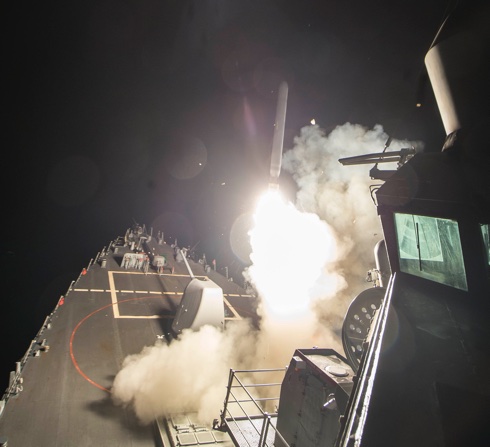
Our illustration shows the guided-missile destroyer USS Ross (DDG 71) firing a Tomahawk land attack missile on 7 April 2017. This class of missile is a long-range, all-weather, subsonic cruise missile.
Introduced by McDonnell Douglas in the 1970s, it was initially designed as a medium to long-range, low-altitude missile that could be launched from a surface platform.
The Tomahawk is a highly accurate, GPS enabled precision weapon that has been used over 2,000 times in combat, and flight tested more than 500 times. The latest variant (Tomahawk Block IV) includes a two-way satellite data-link that enables the missile to be retargeted in flight to pre-programmed, alternate targets. The Block IV design was initiated as both a cost savings and a capability improvement effort.
New eMaritime Group website and mobile App launched
The new eMaritime Group has been launched, the world’s first single website and app bringing together all maritime discounts under one website and mobile app. This was announced on 7 April by IAIN Corresponding Member ECDIS Ltd.
The website has been three years in the making. This is reflected in its diversity and sheer range of choices: from cost-effective online training to heavily discounted simulators and MCA approved STCW courses. Then there are online only distribution of cheap S57 ENC charts and a free social network for seafarers offering hundreds of jobs, regulations, and the latest breaking news.
New ECDIS reference cards now available
On 28 March IAIN Corporate Member ECDIS Ltd released a range of Type Specific ECDIS Reference cards, on-line produced Type Specific ECDIS SMS Procedures and an update to their ECDIS Check Off Cards inspectors and investigators, including questions and answers on all the leading systems.
It is understood that the unique aspect of the reference cards is the ability to customise various cards to ensure accuracy with each company policy. This customisation is completed by way of a simple online form. Such customisation includes confined, coastal and open settings for every menu item as well as watermarking which can ensure no misuse onboard.
UK Transport Committee launches new inquiry on drones
In the Westminster Parliament, the Lower House Transport Committee has launched a new inquiry to consider how the benefits of drone technology can be maximised within a robust safety framework.
Use of civilian drones in the UK is increasing. Drones are now used for a wide range of purposes and there is a significant scope for expansion in the future. A report by PwC found that the emerging global market for business services using drones is valued at over $127 billion. However, the increasing use of drones also raises a number of regulatory and operational issues. This includes risk to other aircraft – an area where laser pens are also an increasing concern.
The Committee would be grateful to receive written evidence submissions by 26 May 2017.
ECDIS announces price match across portfolio
On 27 March IAIN Corporate Member ECDIS Ltd announced a new price match policy on their entire training course portfolio. They have decided to give a price match guarantee on all their courses. They will offer a 10% discount off the competing course price, provided the course is like-for-like and the training company is UK-based.
Welcome Honourable Company of Air Pilots

We extend a warm welcome to a new Corresponding Member of IAIN: The Honourable Company of Air Pilots.
They joined us in mid-March and may their time with us be fruitful. We look forward to carrying news of their activities from time to time.
The Honourable Company of Air Pilots was established as a Guild in 1929 in
order to ensure that pilots and navigators of the (then) fledgling aviation
industry were accepted and regarded as professionals.
The Nautical Institute launches Command Diploma Scheme
The Nautical Institute’s flagship distance learning programme, the Command Diploma Scheme, was launched on 24 March in Singapore at the first of this year’s Nautical Institute Command Seminars.
The scheme is intended for those about to take command as well as those who have just done so. At its core are the subjects that existing and aspiring Masters have identified as areas of concern: onboard leadership and management, navigation and shiphandling, ship’s commercial business and coping with emergencies.
NI’s Command Diploma Scheme provides a practical way for aspiring officers to prepare themselves for the responsibilities and realities of command at sea. It comprises a well thought-out programme of self-directed learning, with challenging practical assignments plus a final essay and interview, all designed to take the candidate far beyond the minimum requirements of STCW. Candidates benefit from having their work assessed by experienced mariners, all of whom are senior members of The Nautical Institute.
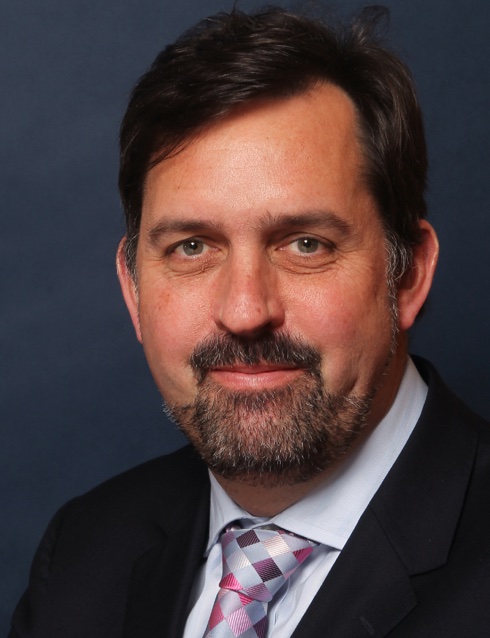
‘Assuming command of a ship is a huge responsibility; you become responsible for the lives of your crew, the ship, your cargo, the commercial success of your company and of course the environment. The NI Command Diploma Scheme is a culmination of many experienced Masters’ knowledge brought together to help the Master-to-be prepare as best possible for this ultimate challenge.’
IMO at IALA – solutions for e-navigation

IMO participated in the 20th E-Navigation Committee meeting (ENAV 20) at the HQ of the International Association of Marine Aids to Navigation and Lighthouse Authorities (IALA), Saint-Germain-en-Laye, France from 13-17 March.
IALA has been actively supporting IMO in the development of e-navigation. ENAV 20 discussed a number of technical solutions to progress the harmonization of information between shore and ships in electronic format, including the data format and structure of Maritime Service Portfolios (MSP), the use of VHF Data Exchange System (VDES), as well as the Maritime Cloud and other solutions under the e-navigation umbrella.
IMO contributes to meeting of Asia-Pacific ship safety heads
It was announced by IMO on 24 March that the organization participated in the annual gathering of Asia Pacific Heads of Maritime Safety Agencies (APHoMSA) in Langkawi, Malaysia from 20-24 March.
Participants from 24 IMO Member States as well as observers from the
International Association of Marine Aids to Navigation and Lighthouse
Authorities (IALA), the International Hydrographic Organization (IHO) and the South Pacific Commission (SPC) took part in discussions surrounding APHoMSA’s work to promote safe, secure shipping and a clean marine environment within the Asia-Pacific region.


